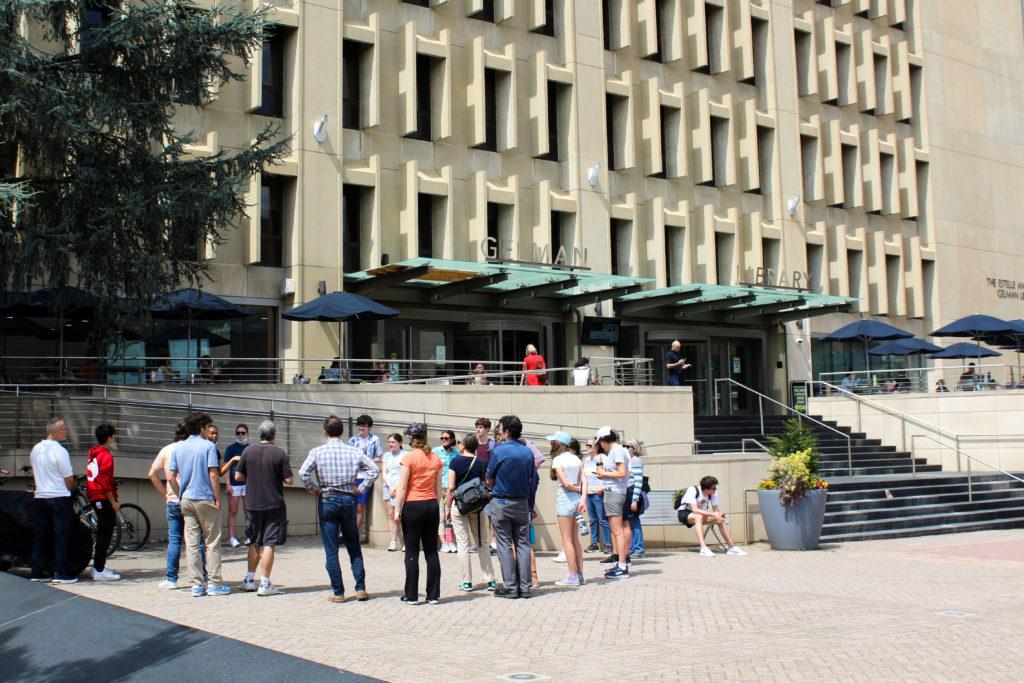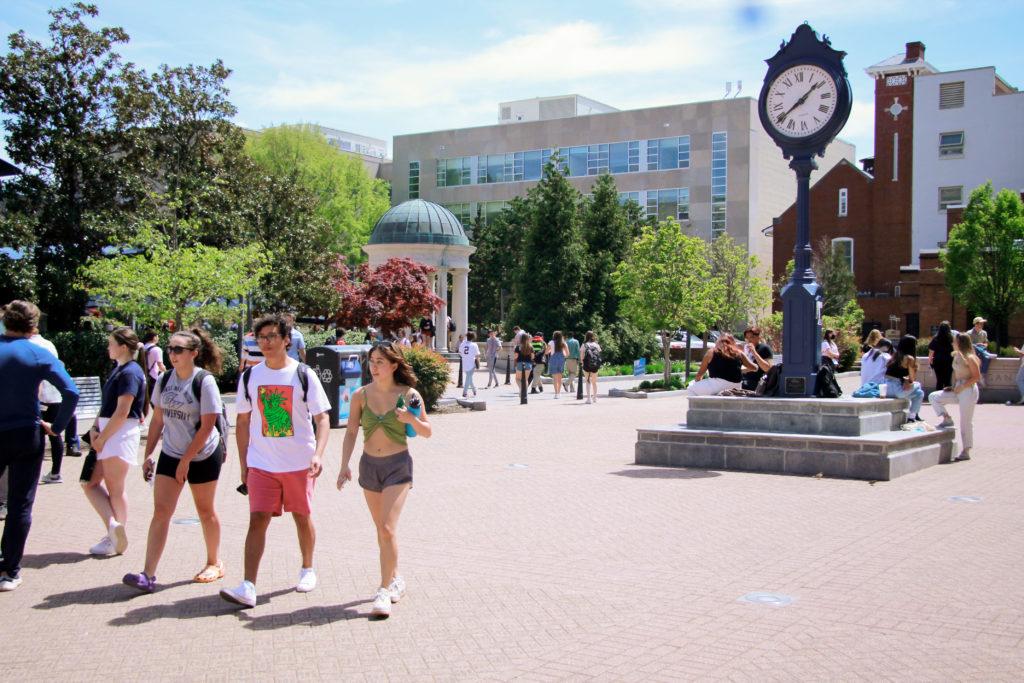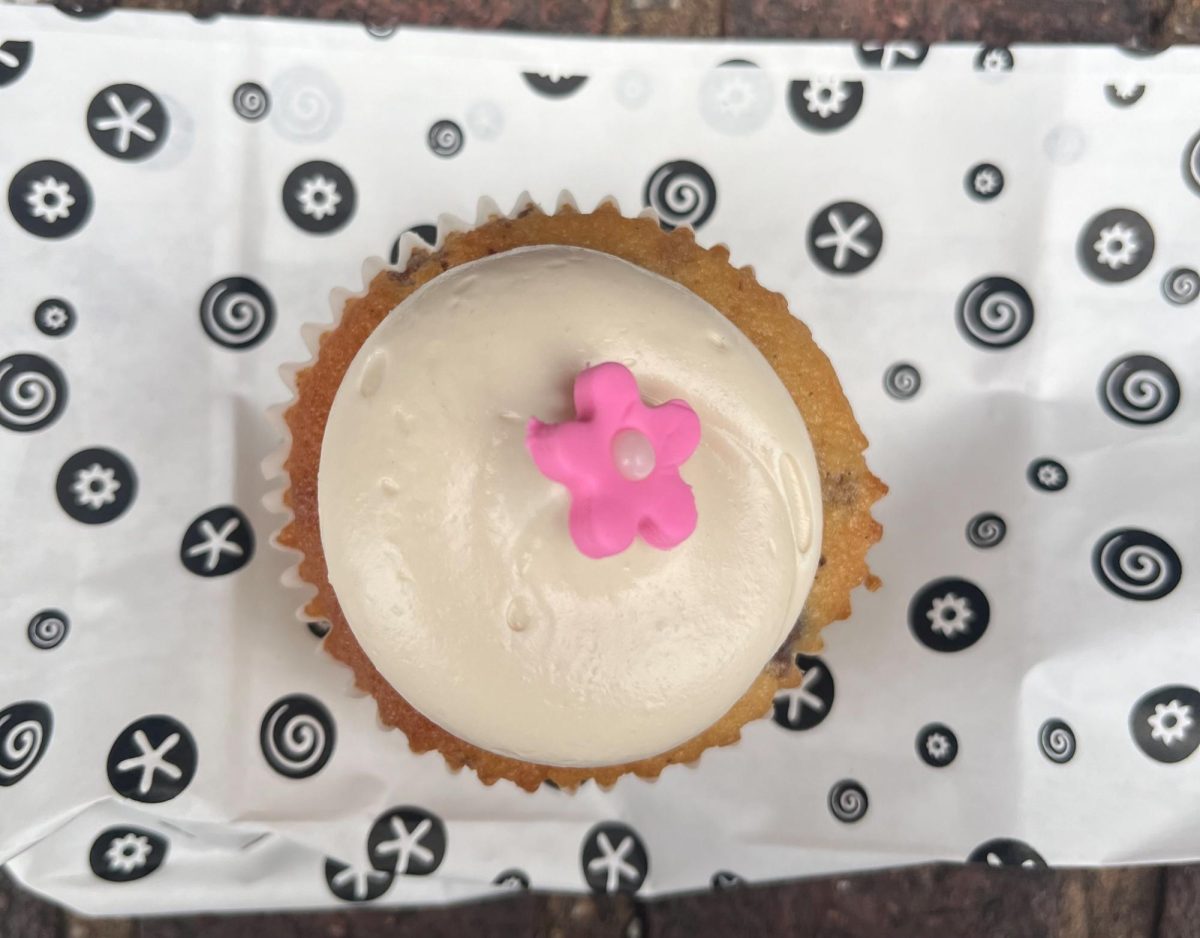Reflecting on their last four years at GW, graduating seniors advise that freshmen get involved on campus and learn to adapt to unexpected changes to make the most out of their college experiences.
Moving away from support systems, deciding what to study, finding community and managing mental health during the COVID-19 pandemic, five seniors said college offered a series of highs and lows that taught them to be flexible and adapt to unexpected changes in their lives. Seniors advised getting involved on- and off-campus through student organizations, strengthening relationships with professors and trying new experiences.
Journalism major Izzy Hardy said students shouldn’t take themselves too seriously, but rather focus on pursuing paths that most suit their interests.
“I’ve learned that nobody’s going to be there to advocate for yourself other than you,” Hardy said. “And so you have to sort of put yourself out there and join the clubs that you want.”
John Watson, an anthropology major, described their college journey as a “self directed and self guided” experience, in which they had to take a lot of initiative and regularly check in to ensure they were doing well in their studies. Watson said they learned to independently make decisions that would best serve them in their education and future.
“This is my future,” Watson said. “This is my education that I’m concerned about, so I feel like I learned to center my life around me. I got to make my own decisions and choices.”
Watson said advisors serve as a key resource for students when developing a class schedule with courses that best align with their academic and professional goals, and professors can share internship and research opportunities that might peak the interest of students.
“As a kid, my teachers were always scary authority figures, but the more you start seeing them as people like us, then it’s easier to talk to them and they’re obviously so helpful,” Watson said.
At a school based in a city with an independent student body and limited school spirit like GW, seniors have also learned the need to get involved on campus to meet new people and establish a supportive community.
“I would definitely do more clubs, definitely clubs,” Watson said “‘Cause like everyone says, I think it’s the best way to find new friends and meet new people.”
Emilia Gorecki, a speech and hearing sciences major, said students should take pride in their work and passions, even if they’re unlike those of their peers.
“If you’re interested in it, go for it and do it,” Gorecki said. “Because it is cool, it’s cool to you, and it’s important to you so you shouldn’t feel bad for feeling like something is cool or being interested in it.”
She said younger students should avoid letting imposter syndrome prevent them from pursuing opportunities before they try them out for themselves, whether making plans with friends or applying for an internship or job.
“Be the person who initiates,” she said. “If you want to do something with your friends, plan it and do it. If you want to apply to a job that you like, just apply for it.”
International affairs major Elena Picon said younger students should get involved on campus and take advantage of the opportunities and organizations available to them. She said when it comes to joining clubs the quality is more important than quantity, but exploring academic and social organizations can help students decide what field they would like to work in and offer a space for students to consistently foster new friendships.
“Get involved in as much as you can even if you’re not super motivated to get involved in it at first,” Picon said. “The more things I got involved in, the happier I was as an independent individual.”
Picon said professors and classes also play a crucial role in shaping students’ college experiences in addition to forging a campus culture. She said she took “revolutionary” thinking courses at GW which improved her writing skills and encouraged her to think critically.
“I think they helped me question a lot of things that I would usually just accept,” Picon said.
International affairs major Sally Kim said although the pandemic led to online learning after students left campus, the shift forced her to pause and think about the academic path she was on and how it would shape her career opportunities.
“COVID changed everything,” Kim said. “And that was the most monumental thing because it taught me so much within the college experience.”
Kim said many students, herself included, come into college aiming to accomplish several goals all at once but then face burnout a few months into the semester. Rather than stretching yourself thin, Kim said students should take their time and enjoy all college has to offer.
“As long as you feel fulfilled and you are happy, that’s the perfect college experience,” she said. “There’s no right or wrong thing to do.”
Kim said although college is a time to expand intellectual knowledge, it is also a time of growth and learning outside of the classroom. With many different organizations and clubs to join, people from different backgrounds to meet and the opportunity to live independently for the first time, college is also a time to gain important life experiences.
“Go to that cocktail happy hour or go to that school event,” she said. “I know it’s so easy to just sit at home and like to be in pajamas, because I do that all the time. But it’s the only time in your life where you can talk with people from so many different backgrounds.”






